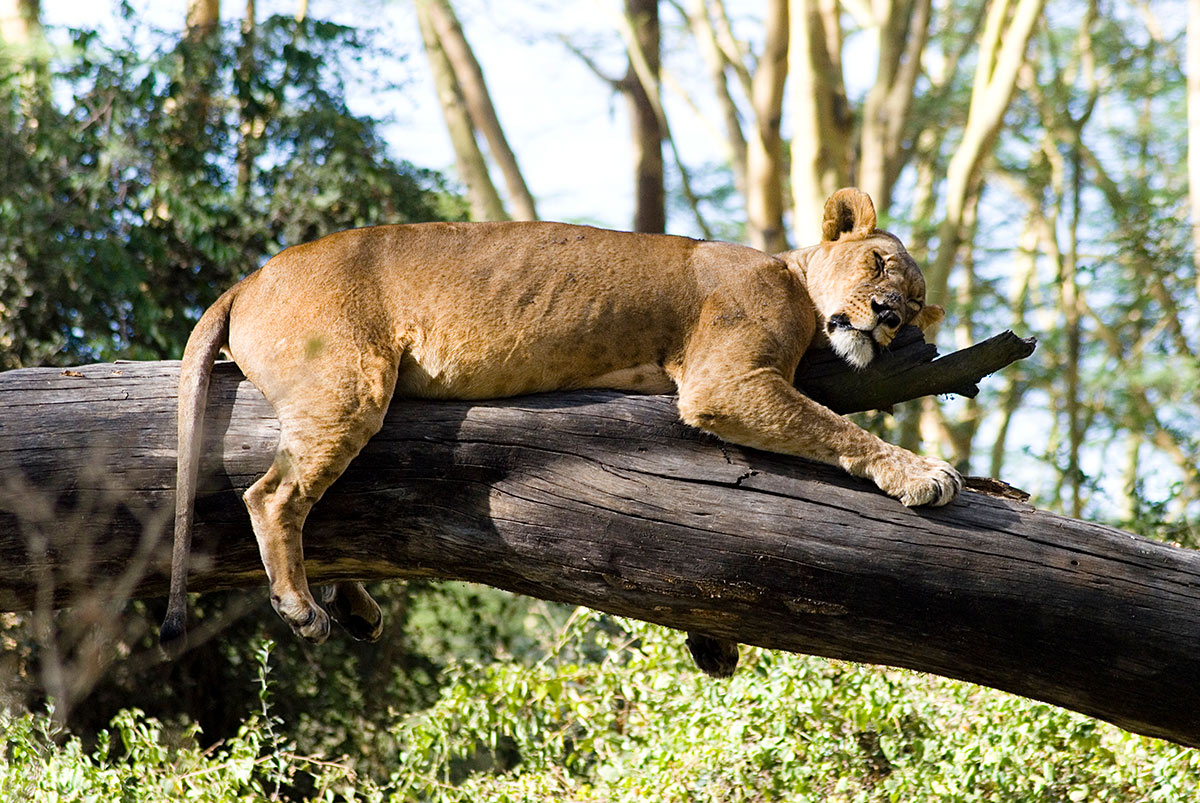
Kenya’s Lake Nakuru National Park was set up in 1960 to protect the bird-life in the plains and hills surrounding the lake and the huge numbers of flamingos that were to be seen along the lake shore in those days. Its accessibility and close proximity to Nairobi (only 140 km by road) makes it one of the most frequented National Parks – popular with Kenyans and foreign tourists alike. The park’s relatively small size (188 sq km) allows you drive around the entire park in half a day and although you will need to remain in a vehicle there are designated picnic and camping sites at which stops can be made.
Although once-famous for its huge populations of flamingos, Lake Nakuru is not their breeding ground and numbers have greatly diminished in recent years due to rising water levels changing the alkalinity of the lake which has significantly reduced the algae on which the lesser flamingos feed. For several years now lesser flamingos have been virtually absent from the shores of Lake Nakuru and are unlikely to return until the lake levels fall and algae is present once again. The flamingos still migrate to the other Rift Valley lakes especially to nearby Lake Bogoria where they can be seen in huge numbers.
However, Lake Nakuru is still worth a visit as it has many other notable park residents – including lion and leopard, plus black rhino and white rhino. Nakuru has become one of the most successful sanctuaries in East Africa for rhino and now houses healthy populations of both. Similarly, the endangered Rothchild’s giraffe from the Soy Plains of Eldoret was introduced in 1974 and it too has bred successfully. There are also quite a few pythons which can be spotted sometimes disconcertingly dangling from trees or crossing roads. The bird life is spectacular with hundreds of bird species and a large variety of water birds including big numbers of pelicans which have been attracted by the increased water levels.
The park is so close to Nakuru town that it is fenced to stop animals wandering into the town and also to prevent unauthorised persons or poachers from entering the park. The closeness of the park to the town means the local people have got to know their wildlife neighbours and school children are often bused in for game drives in the park to see the wildlife thus strengthening the links between the town and the park.



